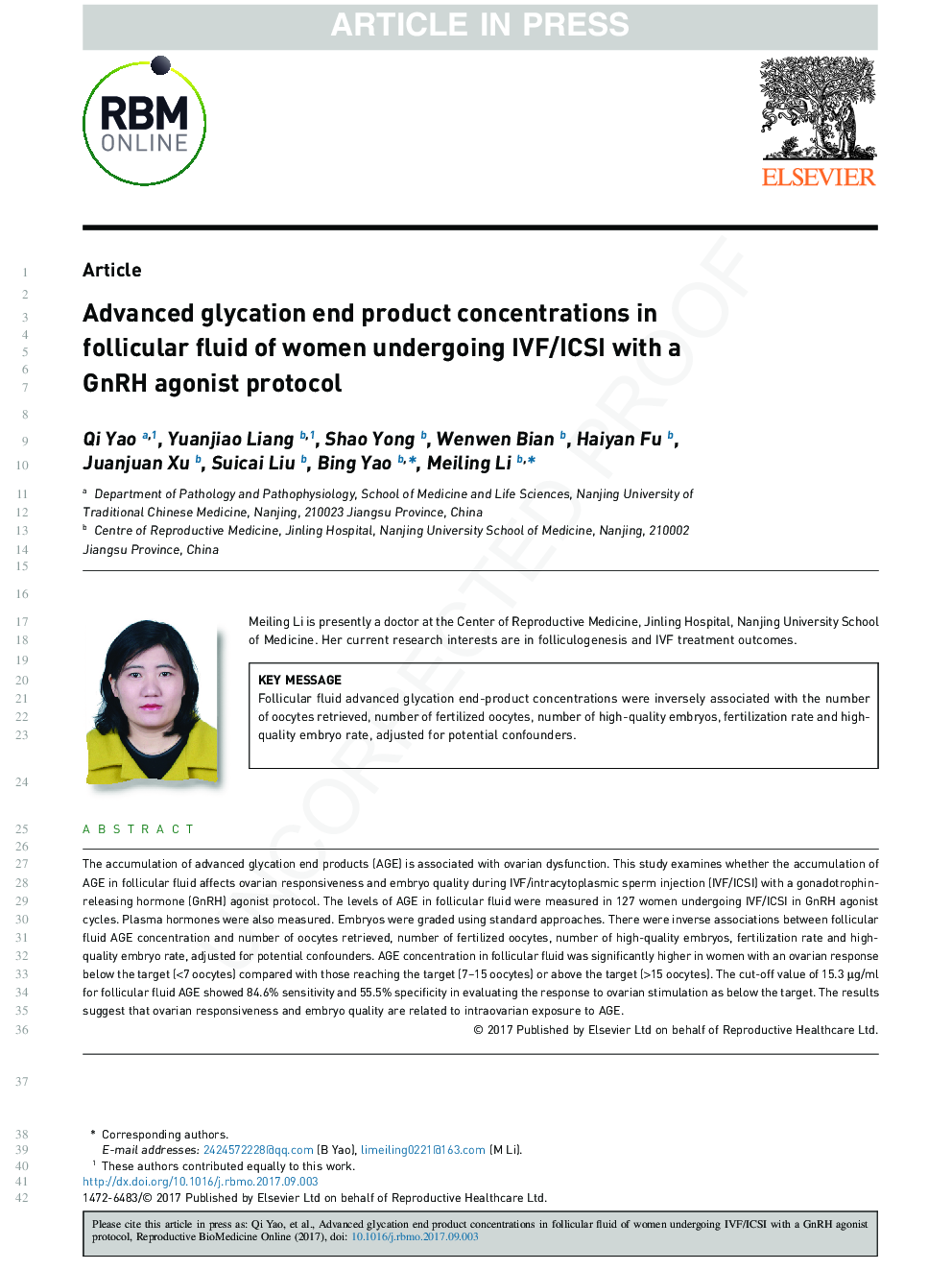| Article ID | Journal | Published Year | Pages | File Type |
|---|---|---|---|---|
| 8783950 | Reproductive BioMedicine Online | 2018 | 6 Pages |
Abstract
The accumulation of advanced glycation end products (AGE) is associated with ovarian dysfunction. This study examines whether the accumulation of AGE in follicular fluid affects ovarian responsiveness and embryo quality during IVF/intracytoplasmic sperm injection (IVF/ICSI) with a gonadotrophin-releasing hormone (GnRH) agonist protocol. The levels of AGE in follicular fluid were measured in 127 women undergoing IVF/ICSI in GnRH agonist cycles. Plasma hormones were also measured. Embryos were graded using standard approaches. There were inverse associations between follicular fluid AGE concentration and number of oocytes retrieved, number of fertilized oocytes, number of high-quality embryos, fertilization rate and high-quality embryo rate, adjusted for potential confounders. AGE concentration in follicular fluid was significantly higher in women with an ovarian response below the target (<7 oocytes) compared with those reaching the target (7-15 oocytes) or above the target (>15 oocytes). The cut-off value of 15.3âµg/ml for follicular fluid AGE showed 84.6% sensitivity and 55.5% specificity in evaluating the response to ovarian stimulation as below the target. The results suggest that ovarian responsiveness and embryo quality are related to intraovarian exposure to AGE.
Keywords
Related Topics
Health Sciences
Medicine and Dentistry
Obstetrics, Gynecology and Women's Health
Authors
Qi Yao, Yuanjiao Liang, Yong Shao, Wenwen Bian, Haiyan Fu, Juanjuan Xu, Liucai Sui, Bing Yao, Meiling Li,
